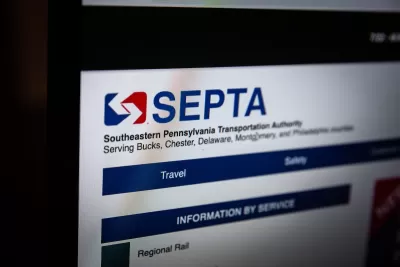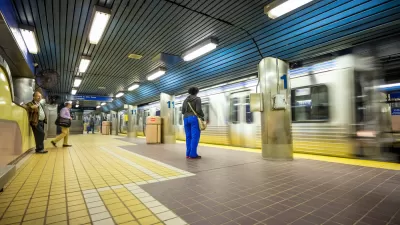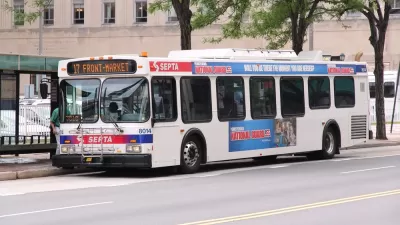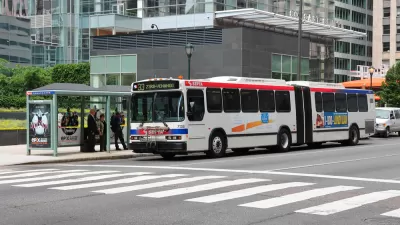The state has not offered a sustainable source of funding to meet the transit agency’s $240 million budget gap.

Officials from Philadelphia’s Southeastern Pennsylvania Transportation Authority (SEPTA) are warning that the agency will have to make steep fare hikes and service cuts as it faces a $240 million budget shortfall.
As Joe Brandt reports for CBS News, SEPTA COO Scott Sauer made a dire prediction: “Service cuts and fare increases resulting from fewer riders, lead to more service cuts and more fare increases, resulting in fewer riders. Until ultimately public transit is no longer relevant.”
Even before the pandemic, the agency relied heavily on state, local, and federal subsidies to make up the gap between fare revenue and its operating expenses.
Under the agency’s plan, fares will increase by almost 30 percent in 2025, while service will be cut by 20 percent across the board. SEPTA has already reinstated parking fees at agency-owned lots and eliminated rider discounts.
FULL STORY: How is SEPTA funded? Inside the Philadelphia transit agency's budget – and what's behind the "death spiral"

Study: Maui’s Plan to Convert Vacation Rentals to Long-Term Housing Could Cause Nearly $1 Billion Economic Loss
The plan would reduce visitor accommodation by 25,% resulting in 1,900 jobs lost.

North Texas Transit Leaders Tout Benefits of TOD for Growing Region
At a summit focused on transit-oriented development, policymakers discussed how North Texas’ expanded light rail system can serve as a tool for economic growth.

Using Old Oil and Gas Wells for Green Energy Storage
Penn State researchers have found that repurposing abandoned oil and gas wells for geothermal-assisted compressed-air energy storage can boost efficiency, reduce environmental risks, and support clean energy and job transitions.

Private Donations Propel Early Restoration of Palisades Playground
Los Angeles has secured over $1.3 million in private funding to restore the Pacific Palisades playground months ahead of schedule, creating a modern, accessible space that supports community healing after recent wildfires.

From Blight to Benefit: Early Results From California’s Equitable Cleanup Program
The Equitable Community Revitalization Grant (ECRG) program is reshaping brownfield redevelopment by prioritizing projects in low-income and environmental justice communities, emphasizing equity, transparency, and community benefits.

Planting Relief: Tackling Las Vegas Heat One Tree at a Time
Nevada Plants, a Las Vegas-based nonprofit, is combating the city’s extreme urban heat by giving away trees to residents in underserved neighborhoods, promoting shade, sustainability, and community health.
Urban Design for Planners 1: Software Tools
This six-course series explores essential urban design concepts using open source software and equips planners with the tools they need to participate fully in the urban design process.
Planning for Universal Design
Learn the tools for implementing Universal Design in planning regulations.
Ascent Environmental
Borough of Carlisle
Institute for Housing and Urban Development Studies (IHS)
City of Grandview
Harvard GSD Executive Education
Toledo-Lucas County Plan Commissions
Salt Lake City
NYU Wagner Graduate School of Public Service





























